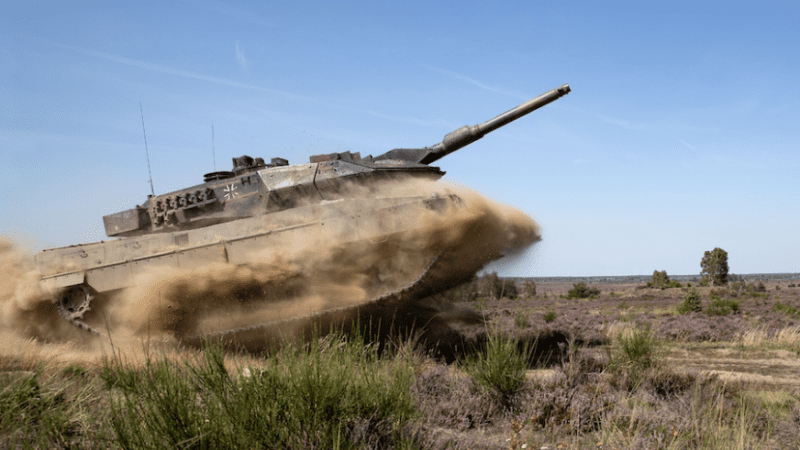Prospects for the modernization of the Armed Forces in crisis

It is obvious that we will have an economic crisis. There are plenty of forecasts, but no one knows how it will be. The crisis will not miss the modernization of our army and defence industry, both public and private. A typical country in such a situation supports domestic business in order to maintain jobs. Military procurement is one of the best ways to support jobs and business.
We have a guaranteed statutory budget for national defence in relation to GDP. Truism, but a decrease in GDP will also cause a decrease in defence spending. In a crisis situation, it is easiest to cut arms expenditure, and after all it is rational.
From a legal point of view, the cheapest and best is the implementation of the Public Procurement Act modelled on the one introduced in Germany. There shouldn't be too many changes. The provisions there seem to be simple, and clearly allow favouring local suppliers. In addition, modelling our western neighbours can be very difficult to challenge by the European Commission, which usually has some concerns about questioning German solutions. Then, in accordance with the law and without complications, it will be possible to choose domestic suppliers also in investments in critical infrastructure.
From a practical point of view, it is necessary to review modernization programs, its terms, costs and effects, and especially it is necessary to take into account the involvement of domestic industry - that is based in Poland, which gives work to our citizens. We have to look at the process on a cold basis - once we have invested a lot in a purchasing program, e.g. program “Wisła” or HIMARS, we have paid advances even exceeding 50% of the contract value, it is not profitable to give them up. Program “Wisła” is necessary to somehow override possession of anti-aircraft and missile defence.
Probably the second phase of the “Wisła” will not be launched. However, program “Narew” is such a project that can develop Polish industry and ensure work and survival in a crisis. After purchasing an effector license, most of the project can be implemented based on the Polish industry. It would be a great impulse for the domestic economy and ensuring survival in the crisis. The need for a short range anti-aircraft defence system for the National Armed Forces is obvious. People would have a job and our taxpayers' money would stay in the country and contribute to technological development.
Now arises a question – what's next with program “Harpia”. The previous one, before the "good change", the Minister of National Defence called for renegotiation or withdrawal from the project, as was the former head of the National Security Bureau. Of course, supporters of the government and government media praise this transaction, saying, among others 32 planes will give us control over the sky and imperceptible entry into the zones inaccessible to a potential opponent. However, unless we have paid too much advance, it is possible to renegotiate the contract or try to leave it. It's true, potential opponent is efficient, agile and practices a lot in a thoughtful way, which is reflected in many studies, including institutions such as Centre for Eastern Studies.
A few arguments:
- when the big crisis comes, which I don't want for myself and others, it may turn out that the program “Harpia” will be cancelled;
- F-35 was bought without a tender. By proceeding without it there is no chance of achieving similar conditions as Belgium, where winner had to break the bid of 3 competitors;
- the purchase does not benefit the economy, but only generates high maintenance and operating costs, not to mention costs of modernization.
In a crisis situation, we should analyse everything carefully, take care primarily of our interests. The Ministry of National Defence must prepare several plans of dealing which the crisis, what and how we must cut down, and prepare negotiation assumptions. We can call for price reduction, payment shifting, better conditions, argue that we cannot afford such an expensive product without benefits for our companies. We can also say that in exchange for concessions in a few years we will make other purchases in the USA, otherwise we will have to consider other suppliers. Of course, it is not easy to negotiate, but in my humble opinion the Ministry of National Defence should demonstrate stoicism and a considerable dose of cynicism (the other side is a very good teacher in this matter) and keep Poland's interests (including the economy) first. After all, the Ministry of Defence and the General Staff should be the mainstay of self-control and cold calculation.
And finally, it remains to be hoped, as I wish myself and everyone, that the crisis will be small or we will fight it quickly and everything will remain the same.
WIDEO: Defence24 Days 2025: Premier Defence & Security Conference in CEE